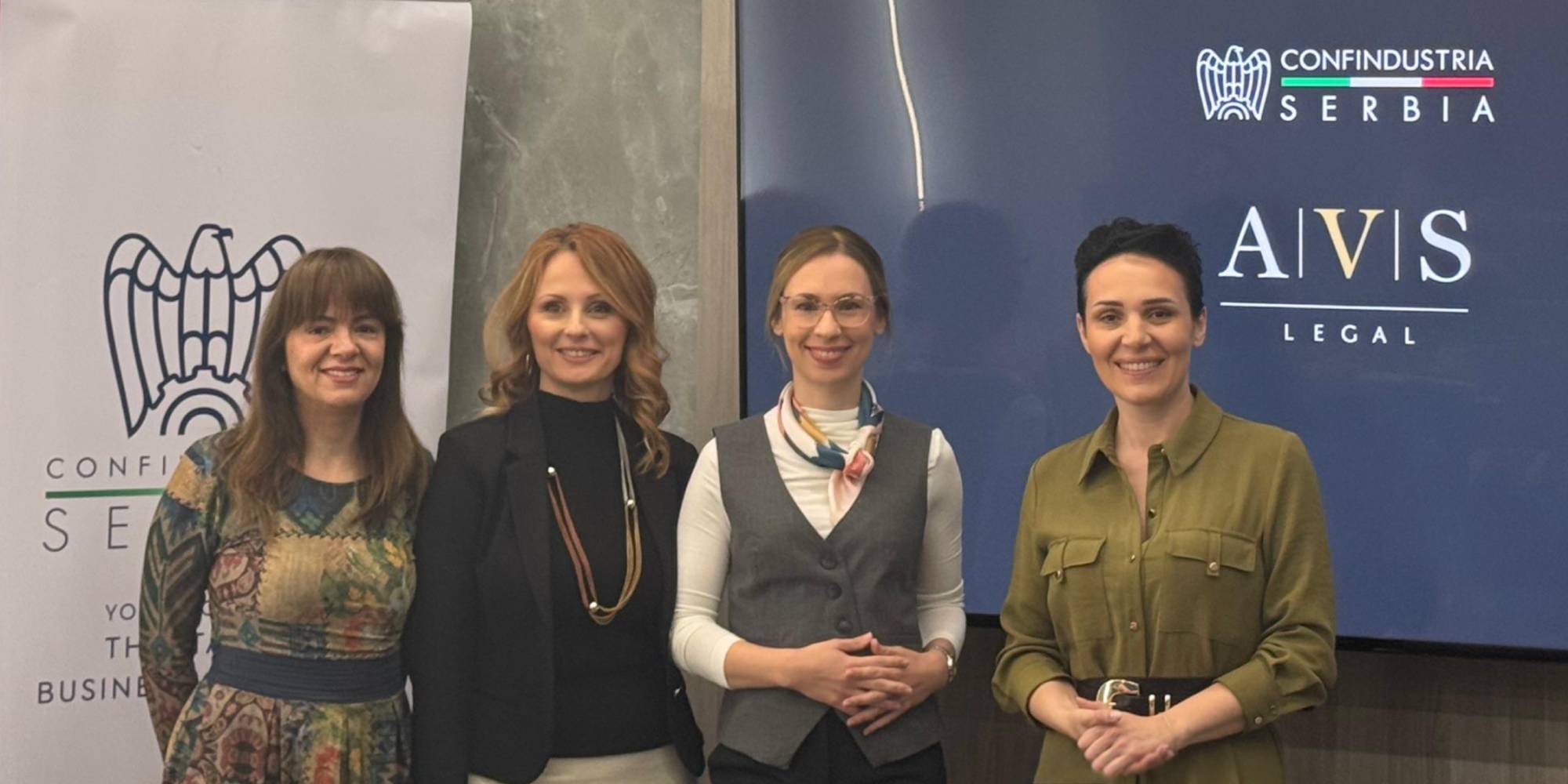
Knowledge We Share – Strength of Community: AVS Legal at the Confindustria HR Forum
AVS Legal participated in Confindustria Serbia’s HR Forum as a guest speaker on the legal aspects of workforce restructuring. The presentation focused on key legal steps employers should take to ensure that redundancy procedures are compliant, strategic, and responsibly executed.
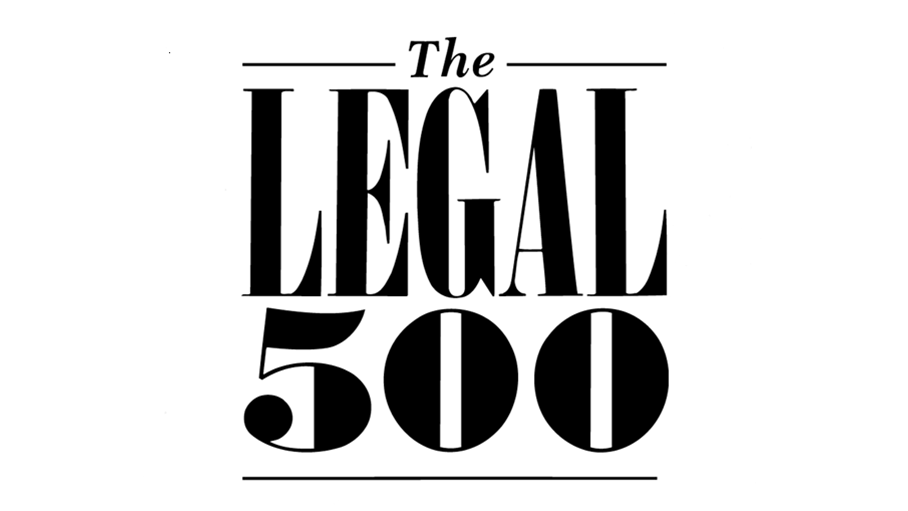
AVS Legal: Fifth consecutive recognition in Legal 500 – A proof of expertise and dedication
AVS Legal proudly marks its fifth consecutive recognition in the prestigious Legal 500 ranking, confirming the reputation od our team as a reliable partner in solving legal challenges in the fields of real estate and labor law.
Expertise in real estate and construction
Our success in negotiating construction contracts, especially based on FIDIC standards, as well as providing expert advice on real estate aquisitons, sets us apart as a leader in the real estate sector. According to Legal 500, our “experienced team with a high level of knowledge of the Serbian real estate and construction market“ continues to achieve significant results, providing practical and effective legal solutions that enable clients to safely and successfully execute their projects.
Exceptionality in labor law
In the field of labor law, AVS Legal provides comprehensive legal support to corporate clients. Our expertise covers a wide range of issues, including employment, regulatory complience, workplace reorganization and resolving labor disputes. Recognized by Legal 500 as a team with diverse engagements, our expert team, led by Irena Kalmić and Mladen Domazet, is known for its proactive approach and providing clear, reliable advice in complex legal situations, as well as for its ability to offer effective legal solutions that enable companies to focus on business success, while ensuring compliance with legal regulations.
Clients testemonials
Our success is also measured through the words of our satisfied clients:
“Dedicated and engaged – a compact team that can easily adjust to the client’s needs.“
“Experienced team with high-level of knowledge of the Serbian real estate and construction market.’‘Proactive, available and skillful.“
“Proactive, available and skillful.“
These testemonials confirm our commitment to building lasting relationships based on transparency, flexibility and practical solutions.
Focus on the future
Recognition in Legal 500 is not only a confirmation of past work, but also an ecouragement for further progress. The combination of expertise, innovative thinking and youthful energy allows us to continue providing legal solutions that bring concrete results and long-term trust.
AVS Legal remains committed to providing excellent legal services, building bridges of trust with clients through practical solutions adapted to modern challenges.

Is There Such a Thing as Free Transportation?
Introducing free public transportation in Belgrade has raised numerous legal and financial questions for employers and employees alike. The key issue is how this decision aligns with the existing legal framework regulating the reimbursement of transportation costs for employees. Previously, employers had a clear legal obligation to pay employees a minimum amount for transportation based on the cost of a public transportation ticket. Now, with free transportation for all individuals in Belgrade starting from January 1, 2025, the question arises as to whether this obligation still applies, given that the reference cost no longer exists.
Employers must now determine whether they are still required to provide transportation allowances to their employees and under what conditions this might be feasible. The lack of a reference cost, which was previously the price of a public transportation ticket, presents a new challenge. Employers are left to navigate these new circumstances and establish appropriate procedures that uphold the intent behind providing transportation allowances.
Has the Ministry of Labor Responded?
In response to the new situation, the Ministry of Labor has issued an opinion stating that “without addressing how employees commute to and from work, the law stipulates the transportation costs that employers must reimburse, determined based on the cost of a public transportation ticket. The law assumes that commuting costs always exist (unless the employer provides transportation), and therefore, employees are entitled to reimbursement of these costs.”
However, the Ministry’s opinion appears insufficiently comprehensive, as it fails to provide clear instructions for practical implementation. Additionally, the opinion is imprecise and does not fully consider all relevant regulations or the legal nature of transportation allowances, leading to legal uncertainty and practical difficulties. The Ministry further clarifies that “employees have not automatically lost the right to transportation allowances; rather, the issue of determining the method and amount of reimbursement needs to be resolved.” This places the responsibility on employers to establish the conditions and amounts for transportation allowances through internal regulations and employment contracts. According to the Ministry, employers should “refer to the last paid transportation allowance” prior to the implementation of free transportation in Belgrade. However, this recommendation lacks a clear basis, as it is not grounded in actual costs.
The Ministry’s opinion concludes that the obligation to reimburse transportation costs for employees is not in question; rather, the issue lies in determining the method and amount of such reimbursement. Employers are required to “regulate the criteria for transportation cost reimbursement in their internal regulations and employment contracts, referring to the amount of the last paid allowance for that purpose.” This means that employers must clarify how transportation allowances will be paid and whether and to what extent they will be provided.
This approach leaves room for various interpretations and practices, creating additional complexities for employers, as the criteria and methods for determining transportation allowances remain unclear and ungrounded in specific parameters.
Furthermore, the Ministry highlights Article 80, Paragraph 2 of the Law on State Administration, which stipulates that opinions issued by state administrative bodies are not legally binding. Consequently, the fact that the Ministry’s opinion is non-binding,coupled with the existing uncertainties, results in both employers and employees facing challenges in implementation, creating room for divergent interpretations and legal uncertainty.
Transportation Allowance or Additional Income?
Traditionally, transportation allowances were intended to cover employees’ actual commuting expenses, rather than serving as part of their salary. In this regard, Article 18, Paragraph 1, Point 1 of the Law on Personal Income Tax provides for a tax exemption for documented transportation expenses incurred for commuting to and from work, up to the cost of a monthly public transportation ticket or the actual transportation costs. However, under current circumstances, where employees no longer incur the cost of a monthly public transportation ticket, any amount paid by the employer in connection with free public transportation would be considered additional income, subject to taxation and social security contributions. Consequently, employers wishing to continue paying transportation allowances in accordance with the Ministry’s non-binding opinion would face increased tax liabilities, as such payments would be treated as employee benefits not based on actual expenses.
In this context, additional clarification from the Ministry of Finance is expected.
Does This Lead to Employee Discrimination?
Another issue is the potential discrimination against employees who commute using public transportation that is not free or who are only entitled to reimbursement of actual commuting costs under the employer’s internal regulations or employment contracts. While these employees use the reimbursement to cover actual transportation costs, employees living and working in Belgrade who use only public transportation would effectively receive an additional benefit if their employer were to pay a transportation allowance despite free transportation. This issue requires a detailed analysis and potential adjustments to employers’ internal regulations to ensure equal treatment of all employees and fairness in applying the regulations, thus maintaining a balance and protecting employees’ rights.
Legal Uncertainty for Employers and Employees
In the current circumstances, although public transportation in Belgrade is now free, the legal treatment of transportation allowances remains unclear. Employers face legal uncertainty and potential additional costs in the form of taxes and contributions on allowances that were previously tax-exempt. Until official institutions provide concrete legal interpretations, both employers and employees remain uncertain about the future status of this right.
Employers are advised to consult legal experts in a timely manner to ensure compliance with the law, while employees should be aware of their rights and ways to protect them.
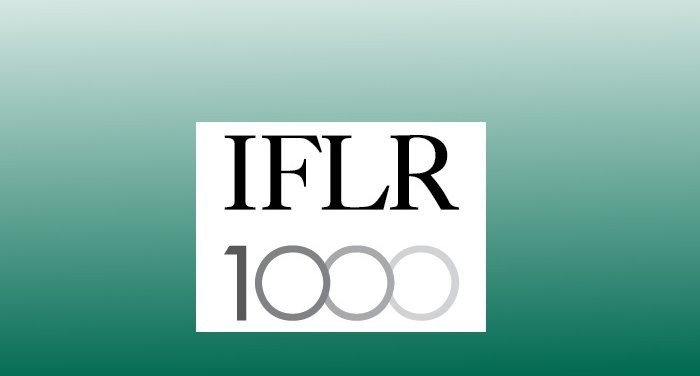
AVS Legal progressed on the list of the best leading offices in Serbia
AVS Legal, in line with previous years, is also ranked this year in the list of the international directory of law firms IFLR1000 in the field of project development, as well as in the field of financial and commercial law.
We are pleased to inform you that clients have recognized the dedication and hard work of our office, and such our engagement this year has resulted in our progress on the IFLR1000 list in the field of project development.
We are particularly proud of the fact that the clients we have worked with over the past year have described us as professionals in our work, whose answers are quick and reliable, analyses are precise, and our approach to counseling and negotiation is confident.
More information on: https://www.iflr1000.com/Jurisdiction/serbia/Rankings/198#rankings

IMPORTANT NOVELTIES AND SIMPLIFIED PROCEDURE OF REGULATING THE STATUS OF FOREIGNERS IN THE REPUBLIC OF SERBIA
At the end of July 2023, the National Assembly of the Republic of Serbia adopted the Law on Amendments to the Law on Foreigners and the Law on Amendments to the Law on Employment of Foreigners, all with the aim of facilitating and speeding up the procedure for regulating the right to temporary residence and the right to work for foreigners in the Republic of Serbia.
Changes that will significantly improve the process of regulating the status of foreigners are the following:
Introduction of the “single permit for residence and work” institute
The single permit for residence and work replaces the previous residence permit and work permit for cases of employment, special cases of employment (seconded persons, movement within a company, independent professionals, training and improvement), and self-employment;
A single permit for residence and work is issued in the form of a biometric document, which entails taking biometric data of foreigners (photograph, fingerprints, and signature);
The term of validity of the single permit for residence and work, i.e. temporary residence, is set for an initial period of up to three years, depending on the existence of the reason, in contrast to the one-year term prescribed so far;
Introduction of the possibility of issuing an act of “consent” by the National Employment Service of the Republic of Serbia for a foreigner to change the basis of work, to change employers, or to be employed by two or more employers during the period of validity of the single residence and work permit, without the change of the single residence and work permit;
Digitization of the single permit for residence and work issuance procedure
A request for the issuance of a single permit for residence and work can be submitted by a foreigner, but also by his employer, i.e. a person authorized by them, exclusively through a Unique web portal;
The Ministry of Internal Affairs of the Republic of Serbia is responsible for deciding on the request for issuing a single permit for residence and work, which can approve the issuance of a single permit for residence and work only if, previously, the National Employment Service assesses that all conditions for employment, special cases of employment, i.e. self-employment have been met;
The request for the extension of a single permit for residence and work or temporary residence can be submitted until the expiration date of the previously valid single permit for residence and work or temporary residence, unlike the previously prescribed deadline of no later than 30 days before the expiration of temporary residence;
Shorter deadlines
Given that one of the main reasons for the adoption of new laws is precisely to speed up the procedure for obtaining a temporary residence, i.e. a single permit for residence and work, the deadlines for certain actions have been shortened (e.g. the deadline for deciding on a request for issuing a single permit for residence and work has been shortened to 15 days from the day of submitting the proper request, the deadline for conducting the labor market test and preparing a report on the realization of the need for employment was shortened from 10 days to 4 days).
Assessment for employment
The National Employment Service of the Republic of Serbia, with the aim of issuing a single permit for residence and work, evaluates the fulfillment of the conditions for employment, for referred persons, for movement within a company, for an independent professional, for training and improvement and for self-employment, in accordance with Article 16 to Article 23 of the Law on Employment of Foreigners.
An important novelty is that the assessment for referred persons and for movement within the company is carried out for a period of up to 3 years, while it can be extended for a maximum of 3 years.
Also, a significant novelty is the expansion of the mandatory content of the act between the employer and the foreign employer on the referral to temporary work in the Republic of Serbia, which, by all accounts, resembles certain elements from the employment agreement.
The possibility of working in Serbia without obtaining a single permit for residence and work
Introduction of the possibility of working in Serbia, without obtaining a single permit for residence and work, for foreigners who have been granted temporary residence on the grounds specified in Article 3 of the Law on the Employment of Foreigners (family reunification with a member of the immediate family of a citizen of the Republic, i.e. a foreigner who has been granted permanent residence, ownership of real estate, approval of permanent residence, asylum or temporary protection, study and international exchange of students, etc.)
Submission of proof of fulfillment of the conditions for approval of temporary residence
In contrast to the provisions of the previously valid Law on Foreigners, the new law stipulates that proof of means of support during temporary stay, as well as proof of health insurance during temporary stay, must not be submitted by a foreigner who is a member of the immediate family of a citizen of the Republic of Serbia, a foreigner who is employed, as well as members of the immediate family of the foreigner who is employed.
Bearing in mind that the changes in question will greatly contribute to the improvement of the regulation of the status of foreigners, it is necessary to provide all the technical and material conditions for the application of the new provisions, hence, the most important changes concerning the single permit for residence and work will be applied from February 1, 2024.
For all additional consultations and assistance regarding the regulation of the status of a foreigner in the Republic of Serbia, please feel free to contact our office at the e-mail address: employment@avs.legal
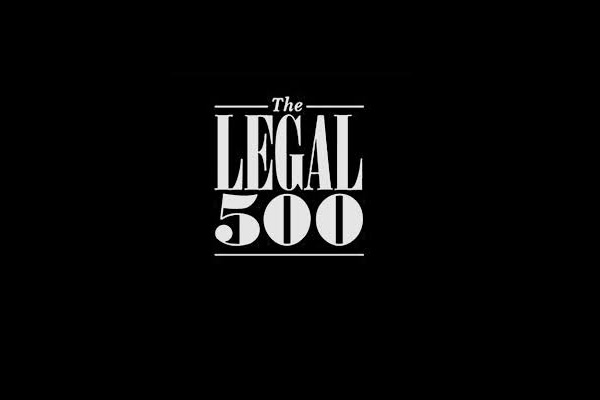
AVS Legal is again ranked among the best leading offices in Serbia
Legal 500, an organization that has been analyzing and monitoring the work of law firms around the world for over 30 years, has conducted a ranking procedure for law firms for the year 2023. The ranking is carried out based on the research of jobs/projects in which the office was engaged, as well as on feedback from clients about the services provided and the results.
The AVS team is proud to announce that Legal 500 ranked the office among the leading law offices in Serbia in the field of real estate and construction law and field of labor law.
In the field of labor law, during the past year, the AVS Legal team provided support to clients in the preparation of various labor law documents, in the negotiation process with the aim of concluding a collective agreement, represented clients in labor law disputes and generally advised clients in order to correctly and legally apply labor law acts.
In the area of real estate and construction law, the AVS Legal team provided support to many clients in drafting construction contracts and other documentation and advised clients in the implementation of various projects.
Clients have particularly emphasized our many years of experience, as well as an approach to solving problems that is, at first, understandable and applicable.
We consider this kind of recognition a confirmation of our previous work and efforts, but also a motivation for further progress and development.
More information about the research results is available on the following pages: https://www.legal500.com/c/serbia/employment/ and https://www.legal500.com/c/serbia/real-estate-and-construction/
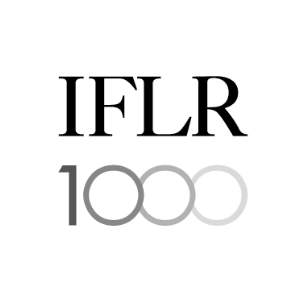
AVS Legal is again ranked in the list of the best law firms according to the IFLR 1000 survey
We are pleased to announce that the eminent international directory of law firms #IFLR1000 ranked AVS Legal as one of the leading law firms in Serbia in the field of Project development, as well as in the field of Financial and Commercial law in its 2022 edition.
We are proud of the fact that this year too, the name of our office is among the leading, renowned names of the legal profession. The achieved result represents exceptional recognition of our work so far and additional motivation to continue improving the quality of our services, as well as to make the ranking within the #IFLR1000 a tradition.
More information on: https://www.iflr1000.com/Jurisdiction/Serbia/Rankings/198#rankings

Incentives for attracting foreign experts to work in Serbia
In June 2022, the “Regulation on criteria for granting incentives to employers who employ newly settled in the Republic of Serbia“(“Official Gazette of RS, No. 67/2022”) came into force and represents an important measure for employers to adapt to new business conditions in an internationally competitive market during the period of inflation. In addition to that, one of the biggest intentions of subject incentives is also the improvement of the demographic picture in the Republic of Serbia.
This Regulation specifies the criteria for granting incentives to employers who employ newly settled persons in the Republic of Serbia, for whom there is a need that cannot be easily met in the domestic labor market.
For the purposes of this Regulation, newly settled persons are considered to be foreign citizens, domestic repatriates, as well as persons educated abroad, from the work area where there is a shortage of professional manpower, all in order to meet the needs of economic activity in the Republic of Serbia.
The condition for receiving incentives is that the newly settled person is a natural person who did not reside in the Republic of Serbia for 180 days in the period of 24 months preceding the day of concluding the employment agreement and with which the employer has concluded an employment agreement for an indefinite period of time, with full working hours with a monthly basic wage of at least RSD 300,000.00, in accordance with the Labour Law.
Having all previously said in mind, this Regulation is suitable for everyone, both foreign employers and domestic employers who plan to invest their money in the Serbian economy.
The incentive will thus cover 70 percent of the calculated and paid payroll tax for one or more employees and 100 percent of the calculated and paid contributions for mandatory pension and disability insurance.
This, as stated in the Regulation in more detail, refers to payments made for the newly settled employee, starting from 01 July 2022 and ending on 31 December 2028. Regardless of the stated period, the employer shall have rights to the incentives for the maximum period of 60 months.
Additional information regarding the subject Regulation you may find by the insight in the text of the Regulation (https://www.neobilten.com/uredba-o-kriterijumima-za-dodelu-podsticaja-poslodavcima-koji-zaposljavaju-novonastanjena-lica-u-republici-srbiji/)
.

AVS Legal is ranked on the Legal 500 list this year as well
The AVS team is proud to announce that one of the most prominent legal directories, Legal 500, has ranked the office among the leaders in the area of Real estate and construction and in the area of Employment in Serbia in the latest survey of the international directory, which has been analyzing the global legal market for more than three decades, highlighting the law firms who are providing the most advanced and innovative advice in different legal areas.
Based on the statements of our clients regarding the services we have provided, Legal 500 characterized AVS as an efficient and flexible team that is always ready to adapt to current circumstances and client expectations, while some members of our team stand out as systematic, reliable, experienced as well as to instill confidence.
Clients we have worked with over the past year have singled out our ability to find innovative solutions to complex problems, as well as expertise in the efficient management of large and complex projects, as the biggest advantage of the office.
More information on the results of the research is available on the website: https://www.legal500.com/c/serbia/real-estate-and-construction/ i https://www.legal500.com/c/serbia/employment/

Quota for Incentives for Wind Power Plants
The government has passed a decree in the quota in the market premium system for wind farms. The first auction for acquiring the right to a market premium will be conducted by the end of the year.
